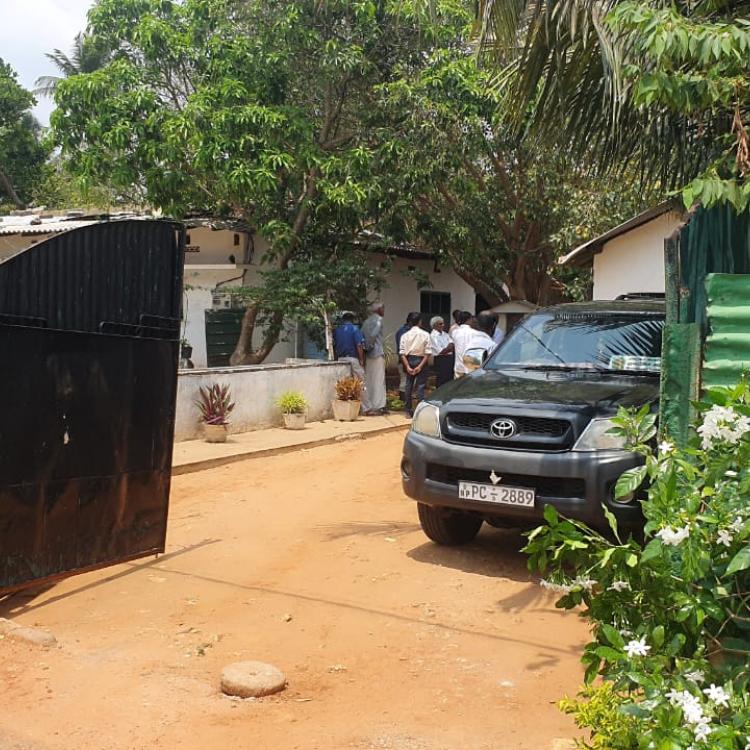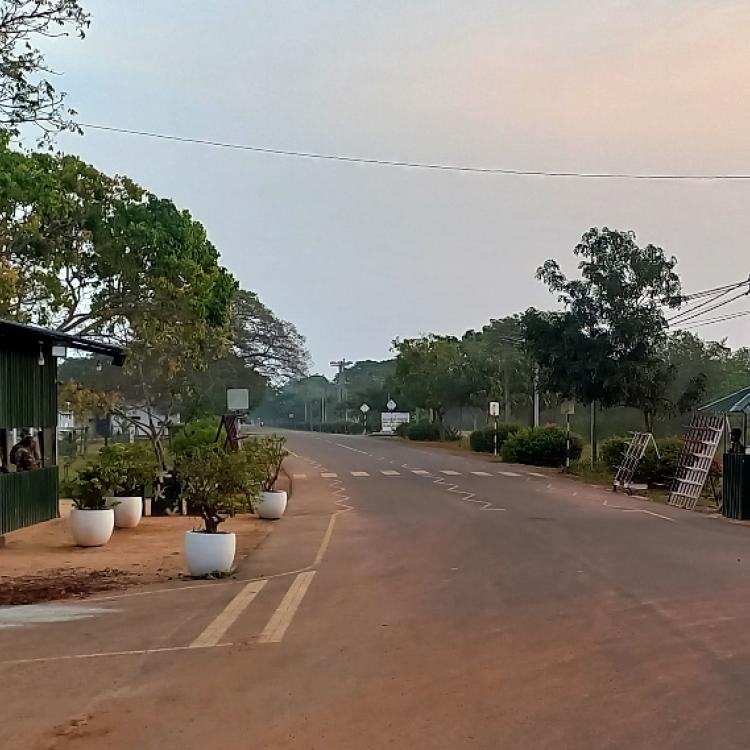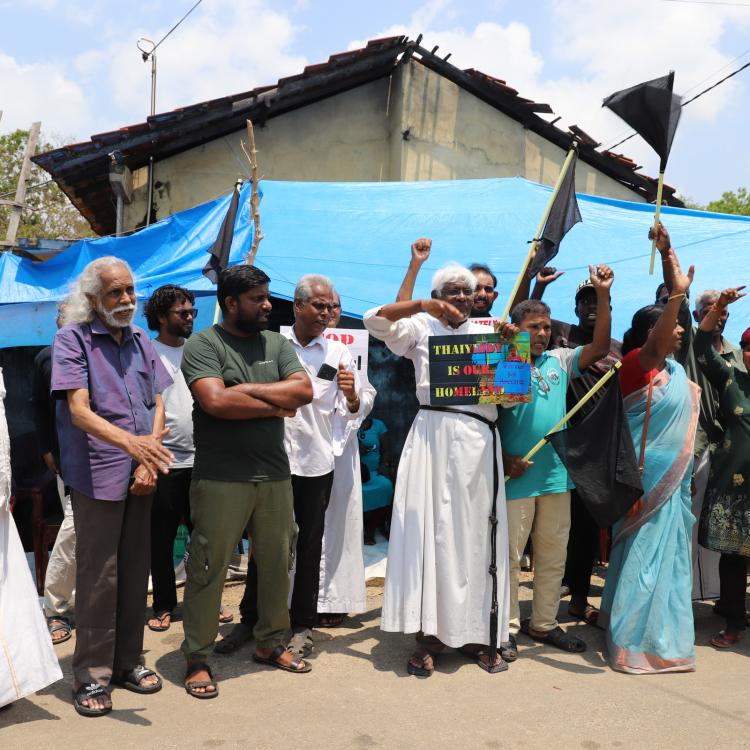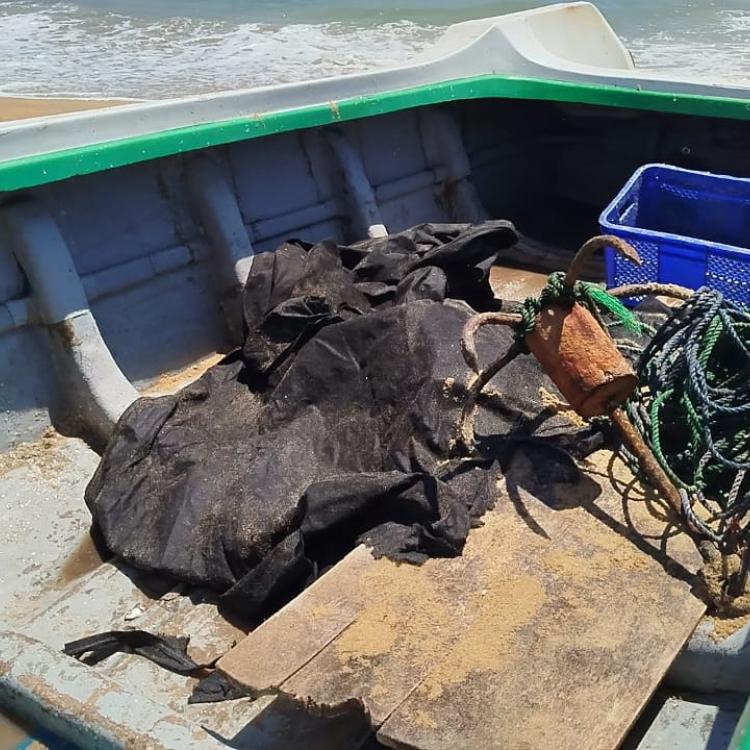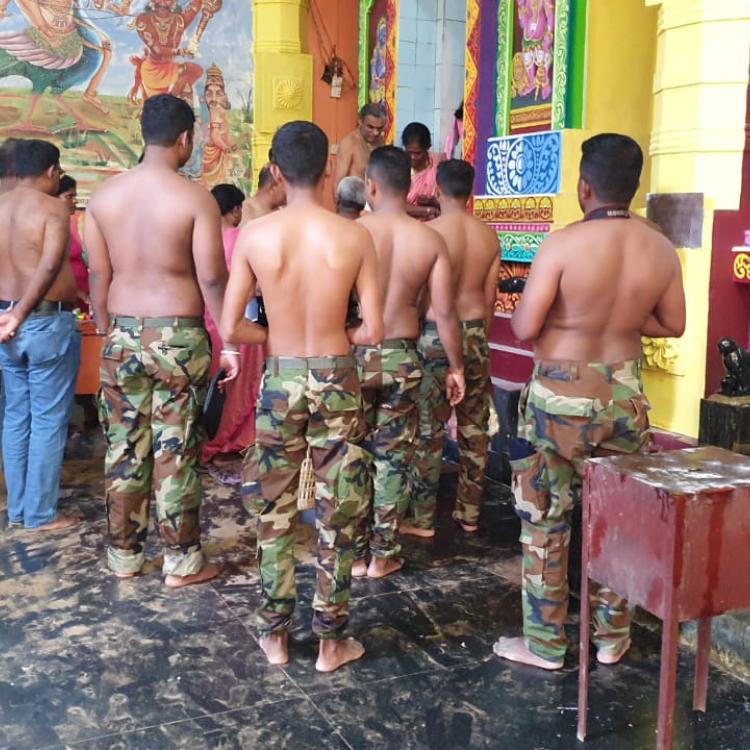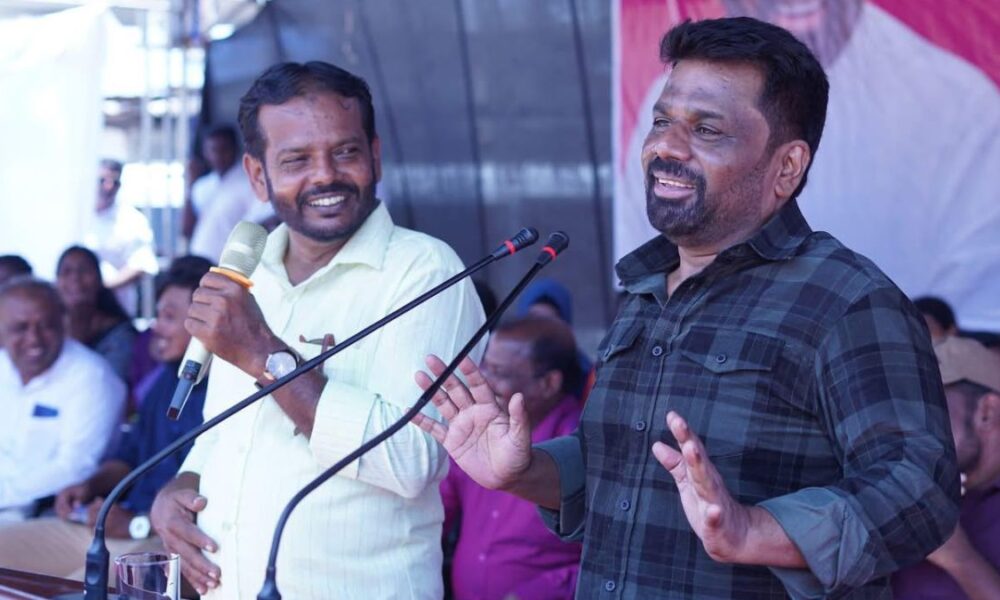
Sri Lankan president Anura Kumara Dissanayake visited Mannar on Thursday, addressing issues such as land grabs, cross-country transport, and what he termed the forging of a “common Sri Lankan identity.”
During his speech, Dissanayake claimed that the recent general election marked a turning point, that voters across the island supported the National People’s Power (NPP), and that the result “brought the people together.” He went on to declare that the new government would protect "national unity," emphasising that there would no longer be a distinction between “majority and minority” communities, but that all would be seen as “Sri Lankans.”
Successive Sri Lankan governments have historically used the rhetoric of national unity to suppress Tamil political identity and resist calls for self-determination.
Dissanayake also acknowledged that land belonging to civilians had been seized during the armed conflict, noting that roads were closed and some lands were brought under the control of the Forest Department. “We will resolve all these issues,” he said, “allowing people to settle down on their lands and do cultivations freely.” His statement comes amidst ongoing protests over the construction of Buddhist viharas on private Tamil lands, such as the Tissa Vihara in Thaiyiddy, as well as continued attempts by state institutions to seize land across the North-East under the guise of forest conservation or archaeological claims.
Despite the partial release of some lands previously occupied by the military, Tamil organisations and political parties repeatedly warn of fresh efforts by the state to appropriate land and entrench Sinhalisation in the Tamil homeland. The militarisation of the homeland remains in place, with Sri Lankan armed forces maintaining a heavy presence near temples, especially during religious festivals and cultural observances.
Dissanayake also highlighted Mannar's economic potential, pointing to its rich marine resources and fishery sector. He addressed growing concerns about illegal fishing in the region, particularly in Pesalai, where local Tamil fishermen have faced increasing hardship due to encroachments and environmental degradation.
The Sri Lankan president announced that 400,000 new families would receive 'Aswesuma' benefits - social welfare programme for the poor and vulnerable - starting June. However, many Tamil families in the North-East have raised concerns about discriminatory access to social welfare and structural inequalities that persist more than a decade after the end of the armed conflict.
Addressing the issue of renewable energy projects, Dissanayake stated that previously approved wind power initiatives had failed to account for environmental risks and were now “temporarily suspended.” In Mannar, Tamil political parties and environmental organisations have continued to oppose destructive mineral sand extraction projects that threaten local ecosystems and livelihoods.
Dissanayake’s visit comes at a time of deepening mistrust in the Tamil homeland, where decades of land grabs, militarisation, and cultural erasure continue to fuel calls for international accountability and a political solution based on Tamils' right to self-determination.

